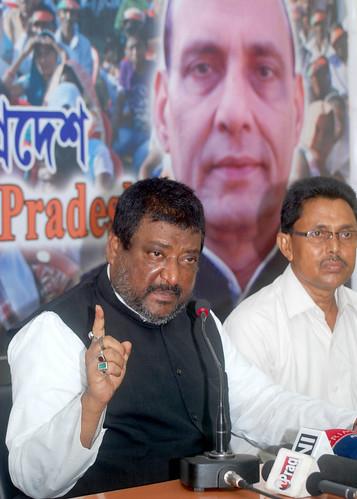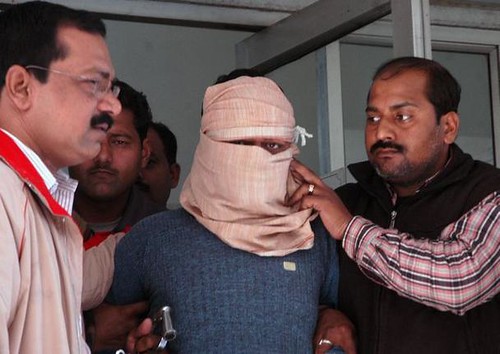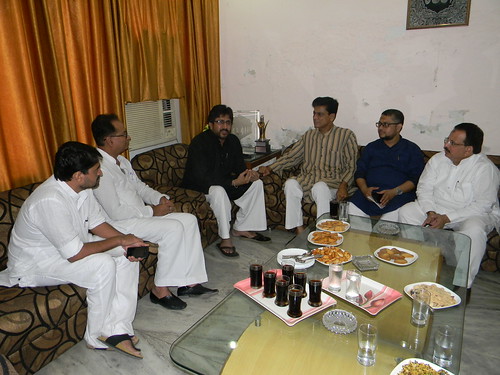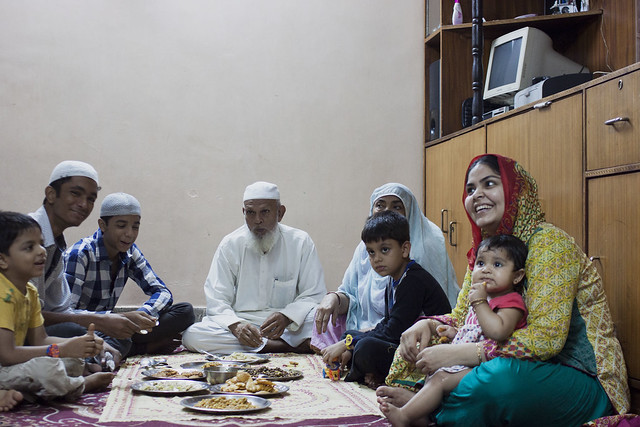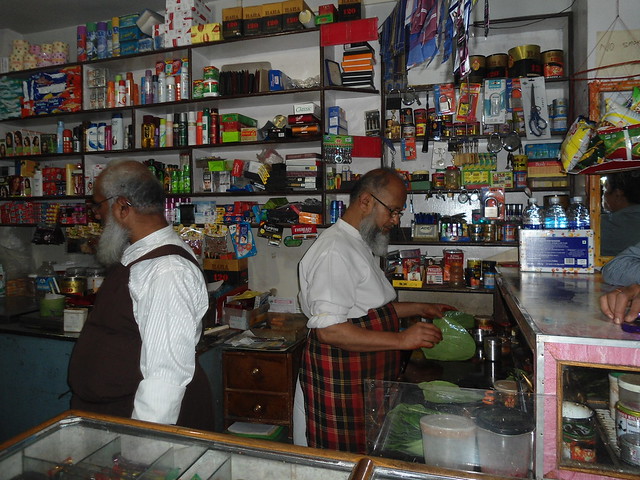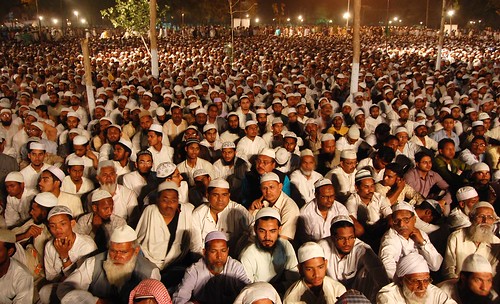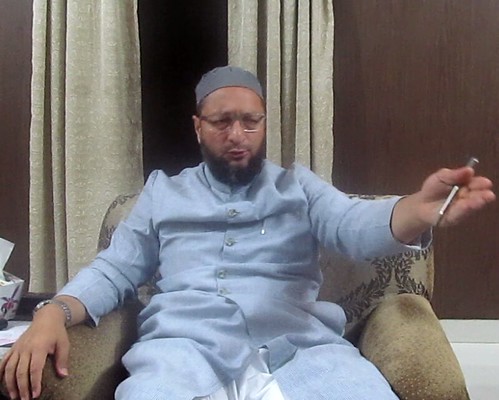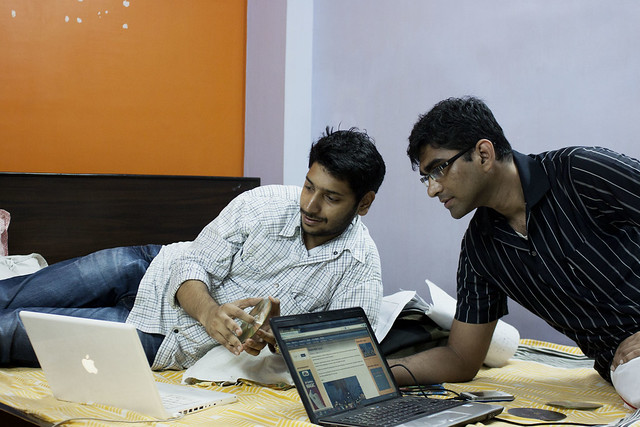By John Dayal
A decade and a half into the 21st Century, India struggles in meeting simple needs of life for a vast majority of its people, variously estimated at 600 to 800 million of its population of 1.20 billion. It hovers at the bottom of the international list on human indices, human rights violations and disempowerment of the people on the margins.
A constitutional democracy by law, it however shares traits with the worst dictatorships in the anti people ethos of its police and security forces rooted deep in the country’s past as the subject state of an imperial order, and in the lethargy, incompetence and elitist tenor of its criminal justice system. Neoliberalism and the imposition of International Monetary Fund and World Bank dictated economic policies have left the poor untouched, increased the gulf between the haves and the have-nots, and plugged India into the meltdown that has afflicted the United States and Europe in the last one decade.Corruption nullifies whatever good may have been generated from the few social initiatives taken in the 65 years of Independence.
India today stands divided into two unequal halves – the super rich five per cent of the population and the now 300 million so called middle class well-off people aspiring to a global life style on the one hand, and the farmers, industrial labour, millions of unemployed educated, landless peasantry, Tribals and Dalits on the other. The gulf is widening. And with it, there is anguish and anger of the powerless, which occasionally bursts out, only to be repressed, crushed and defeated with brutal state power. Social groups have been beaten into submission, trade unions have been disemboweled, and even the Church has been cowed into submission by arrogant misuse of regulations. Peaceful assemblies are disallowed and dissent is treated as rebellion. The princely states were abolished when the Union was formed after Independence, but feudalism is alive and well in India. The incomplete land reforms in the 1950s and 1960s have left countryside replete with the dispossessed while a smaller number of big landlords are rich and powerful enough to dominate even the political environment in several states. Combined with patriarchy in such society, parallel systems of justice such as the Khap Panchayats have evolved.
The abolition of untouchability outlawed the most pernicious practices of the caste system, and ensued a modicum of self-respect and protection for the Dalits, or at least those of them that were defined by the Scheduled Castes and Tribes legislation. But that effectively kept out Christians and Muslims whose origins were in the Dalits. The evolution of the Panchayati Raj system should have brought another ray of hope to these people, giving them grassroots political power, but surrogate leadership by the upper castes and a great intolerance to genuine Dalit leadership, specially among women, has led to much bloodshed.
Economic growth has fallen to a decade low of 5%, while industrial output has slowed to a 20-year low of 1% in 2012 and exports have slumped. Food price inflation is still high, over double-digits in recent months. Flagship schemes like MGNREGS are lagging sharply behind targets adding to the economic burdens of the poor. The corporate sector, pampered beyond belief, has repeatedly sought to coerce governments and political parties into doing its will. Using the clout of its money, it has diverted popular anger against corruption, for instance, into a blackmail of governments, using a compliant, complicit media for the purpose. The media has had little option, as much of it, especially the powerful television networks and the major newspapers, are owned directly by the national and corporate groups, and often by international interests through Financial Direct Investment instruments.
The corporate sector is not just dictating policy, it is now bold enough to dictate who will be prime minister, or chief minister. The corporate sector’s assault on the rights of the poor, specially of marginal farmers and the Tribals is apparent in the usurping of not just their farmlands, as in Bengal and Maharashtra, but their very homes in the forests of Orissa, Jharkhand and Chhattisgarh for mining, power plants and special economic or export zones. In the guise of development, large-scale displacement has been enforced. As is now the norm, protests have been met with vendetta, oppression and state violence on people seeking ownership over their own land, their forests, and their water. Ironically, the saturation of mobile phones is more than houses or jobs.
Hyper-nationalism and a perverted patriotism have overwhelmed civil space. In this environment communal groups thrive unbridled. Their poisonous ideology permeates major politician groups, and has successfully infiltrated even self-styled secular political parties and groups. With the State behind them, communal elements have targetted Muslims and Christians in particular, branding them as anti-nationals and aliens. While entire communities are labeled and stigmatized, innocent Muslim youth have been specific targets, arrested without reason, tortured in jail and occasionally liquidated in fake encounters in several states. Many remain in jail without trial.
India’s election system should have been an opportunity to change this ugly reality. But money power, muscle power, rampant illegal electoral practices, caste considerations have been unabashedly used to effectively disenfrenchise the marginalised and the poor. Their vote is coerced, their numbers exploited. Elections have repeatedly brought anti socials and criminals to power, given governance into the hands of the venal and the communal. Parliament and State assemblies have been reduced to rubber stamps legislating laws and policies dictated by vested interests, with no time or thought to devising social schemes, welfare safety nets and health insurance. The demand for a right to food, to livelihood and to a roof is chocked into silence. But the poor do not lose hope. They continue to believe in democracy, and to hope that the General elections are the only way to effectively changed situation, whatever times it takes. They know their day will surely come. They know their strength despite the overwhelming and depressing odds stacked against them. They were the backbone, they know, of the Freedom Struggle, providing the manpower to the movement to break the shackles of colonialism. Such indeed is the history of rebellions and freedom movements across the world. They are the movements of the Poor, even if the titular leaders and figureheads make their way into the history books. It needs be remembered that the corporate sector and the princes and landlords sided with the colonial masters till the last day.
This belief of the poor in democracy, this over all commitment to peaceful means for change and this refusal to remain silent, makes the General elections so important even if there is an undertone of frustration and just a hint of cynicism in the educated and the working class among them. The agenda list, the demands, the hopes and the aspirations, are not in an order of importance. Each one of them is equally important. These are not strands, but the fabric of a needed safety net in the country whose Constitution claims it to be a “secular, socialist republic”.
This, then, is a 25-point People’s Manifesto from the Margins:
1. The Right to Life, Liberty and the Pursuit of Happiness. Despite the first guarantee of the Constitution, this is not implemented either in letter or in spirit. The governments over the years have come to believe that is a right that can be ignored when it suits them. It is not a matter of abolishing the death penalty, which must be done forthwith, but of realizing that human life is sacrosanct and cannot be subject to the whims, fancies or imagined fears of the state. Illegal encounters, torture and the brutalities of hired goons as much as state security forces, have made a mockery of the universal right. Political parties contesting the election must commit themselves to an end to the regime of impunity, extrajudicial killing, incarceration and disappearances.
2. The right to Food is part of the right to Life. Crores of tonnes of food grains rot in godowns while parts of the country face a famine situation, and the very poor cannot even afford to Re 1 per kilo dole that some state governments want to give. There must be a comprehensive Right to Food Law in the country so that no Indian goes to bed hungry, that there is no death because if malnourishment. This must be made possible without hiding behind excuses that farmers will not get remunerative prices if a Food Bill is implemented.
3. The right to a livelihood and the payment of minimum wages to MGNREGA workers as directed by various courts of law. Even after decades, government has not been able to either create or ensure sufficient jobs for the people, specially for the youth both in urban areas as well as in the villages. A comprehensive employment policy is required. Rural areas need to be developed to create employment potential. This will itself be a major engine for economic growth, which is holistic, and envelopes those so far left out. There must be a universal policy on how to bring relief to both urban and rural unemployed. The urban unemployed have been almost entirely left out of government’s reckoning. There is need to evolve a suitable urban employment and self-employment scheme. In rural areas, Mahatma Gandhi National Rural Employment Scheme was supposed to bring relief. Lack of penetration into remote areas, rampant corruption and arbitrariness, lackadaisical attitude by state and district administration; have severely impacted on the scheme. The rates of payment are ridiculously low considering that the scheme guarantees only a very limited time of employment. This has been noticed by court of law. He government must implement a scheme for a minimum standard of wages and then ensure that payment is made without erosion by corrupt officials or political elements.
4. The right to a home with a roof. It is not just the nomads of Rajasthan or south India that go homeless. Crores live inhuman lives in urban ghettos and slums, and on the margins of villages, a plastic sheet or some branches of a tree their only shelter. Urban and rural housing schemes have never been evolved to take into account the needs of the very poor. In an age where real estate speculator and corporates are making thousands of crores of profits buying land from peasants to make luxury houses for the upper middle class, a major silent population looks for space to live. There is urgent need for a comprehensive rural and urban housing policy which will create shelter for crores of families and also organise growth in urban an semi urban areas. This will have a salutary impact on health, education and other social parameters.
5. The right to Clothing. The naked Indian is not a metaphor. In slums and villages, it is the reality for large numbers of people, specially women and children. Affordable clothing is desperately needed, not just to shelter the body from the elements, but as an integral part of human dignity.
6. A genuine right to education. The Right to Education Bill remains mired in controversies, litigation and the apathy of state governments who are charged with implementing it. Minority education and rural education are particular victims. Rural schools still remain without teachers, buildings toilets and black boards and textual material. Specially ignored are schools for Dalits, Tribals and the homeless. Governments must build more hostels so that children in remote areas have access to education and a suitable environment. The governments have still to evolve a comprehensives vocational training and higher education policy to ensure employability of the youth.
7. The right to Health. India has amongst the world’s highest infant mortality, and deaths of women in childbirth. Though major epidemics have been prevented, tuberculosis, malaria and malnutrition-induced diseases ravage the land. The poor cannot afford Medicare. Government must evolve a national health policy and health insurance to make state of the art medical services and cover available across the country, specially in remote and inaccessible areas.
8. The right to justice. This basic right is ignored, abused, and trampled upon. The poor believe there is no justice in the land. The criminal and civil justice system needs to be reformed, once again at the basic block and district level to cut down on the backlog, with judges who are sensitive to the needs of the disenfranchised. The people must feel there is justice in India.
9. The right to movement. It is a shame that the people of a free and independent India are subjected to the, violence and official persecution when they seek to migrate to the big cities, pilloried for their regional background and barred from employment, housing and liberty. Police harassment and violence at the hands of communal and sectarian elements is the norm for people moving to Mumbai, for instance. Strong and urgent steps are required to curb such intolerance and to ensure that people moving and migrating for employment have their rights fully protected.
10. The right over land, water, and air by the Tribals, the right not to be forcibly dislocated and dispossessed -- the interests of people and State, and not corporate sector to be safeguarded. State terror is not the response required in response to the Tribals effort to protect themselves when corporates seek to pillage and pirate their natural resources and dispossess them of their homes, their lands and all they hold sacred. PESA must be implemented in letter and spirit, as must the Forest Act and the guarantees under the 5th and 6th Schedules. Governors of States must be held personally responsible for any violation, as they are the guardians of these guarantees. It will not do to label dissent and protest as Maoist or extremist political activist. A political solution must be sought to end armed conflict instead of unleashing police and paramilitary terror. Those arrested without adequate reason must be released forthwith.
11. Completing the land reforms. The government must immediately revive the land reforms process to end injustice in rural India. Definitive policies must be evolved to prevent coercive alienation of land by state or non-state parties.
12. The right of women in general, and specially women of the poor and disposed. Rape, Khap Panchayats, domestic violence, the plight of domestic women labour point to the fact that India has no respect for its women. The National Policy on Women remains on paper. A national gender policy must be evolved to cover all aspect of a women’s experience – from violence, patriarchy, employment, personal and natal health, to emotional security and reforms in laws that betray a gender-imbalance.
13. The right of Freedom of faith and prevention of communal and targetted violence by state and non state players. Muslims feel insecure in India because of their demonization by state and non-state actors, specially of the fundamentalist right hyper nationalists. Their personal laws are perpetually being questioned. There are hundreds of communal riots every year of which Muslims are the main victims. Persecution of Christians is rampant in a number of states. Several states also have the notorious Freedom of Religion Acts, which severely target the Christian community and which leads to violence at the hands of Hindutva elements. Freedom of faith must be ensured without any dilution. These so called Freedom of Religion Acts must be repealed forthwith. The Communal and Targetted Violence [prevention, rehabilitation and reparation] Bill must be made into law
14. The right for dignity, and the rights of the Dalits. Dalits continue to suffer an assault on their rights and their dignity. Laws for their protection and development must be implemented in letter and spirit, specially in states where these are flouted with impunity.
15. The rights of the Dalit Muslims and Dalit Christians. These communities have been betrayed by the political class at the behest of communal elements. Their Freedom of faith ahs been abrogated by the Presidential Order of 1950, now Part III of Article 341. Government must restore with immediate effect the full guarantees they once enjoyed as members of the Scheduled castes, including economic, employment, education and political rights now given to Dalits espousing the Hindu, Sikh and Buddhist faiths.
16. The right of free assembly by labour and peasants, and the right to free speech and expression without intimidation and censorship. Neo liberal policies have seen a decimation of the right of the working class, specially their right to form associations and unions. Police and state governments have acted at the behest of the corporate sector to “ensure” a liberal industrial climate. The rights of the working class must be restored and protected.
17. Reforms in the Panchayati Raj. The Panchayati raj was an important step in bringing self-governance to the villages. But experience has shown that it has been subverted by caste, class and vested interests. It must be restored to its pristine form with further safeguards to protect the interests of women, Dalits and religious minorities.
18. Need for a National Policy on natural resources to prevent their exploitation by national and international corporates; checks and balances on international corporates and national monopolies, specially in the realm of natural resources. Steps needed to end the nexus between politicians, administrations and media, and national and international monopolies, specially in mining and power sectors.
19. Electoral reforms from Panchayat Raj to Lok Sabha. Reforms must be devised and implemented to end the intrusion of money power, caste, extreme ideologies, hate and other extraneous factors in elections. The Election Commission must be empowered to disbar candidates with a criminal record, or professing communal and exclusionist ideologies.
20. Police reforms. It has been four decades since the Dharam Vira Commission suggested reforms to modernize the police force still rooted in its colonial past and a century-old code that was created to keep a subject people under duress. It has no place in a modern world. Police informs should involve changes in recruitment and training policies, deployment and policing procedures, more scientific investigation, end to third degree and other extra judicial procedures and the registering of crime.
21. Judicial reforms are the natural consequence of police and other reforms. Time now to take a deeper look into the criminal and civil justice system from the lowest courts to the highest, the Supreme Court. Judicial service reforms must follow the police reforms. At the level of the high courts and Supreme Court, there must be a transparent system of appointment of judges and their promotion.
22. Checking corruption. There has been much noise about fighting corruption and an independent investigation agency such as the CBI without political control. There is however need for caution. The emerging authority must not be allowed to become a monster. There is need for an ombudsman whose appointment is transparent, but who remains within parliamentary scrutiny. So indeed must the Central Bureau of Investigation instead of becoming a terror stalking the land on a perpetual witch-hunt.
23. Policies for peace in the region. India spends billions on defence against possible invasions from its neighbours. Their policies as much as domestic hyper nationalists and their jingoism have so far prevented the evolution of any worthwhile peace doctrine for south Asia, or long term relationships with China, Pakistan, Nepal, Bangladesh and Sri Lanka, apart from Afghanistan and Myanmar. While national interests are paramount, there is need to look for diplomatic methodology that overcomes rhetoric and paranoia and seeks lasting peace and economic development as a worthwhile objective. This alone will held reduce defence expenditure and shift focus to national and regional development. The big brother attitude is no longer valid.
24. Emphasis not on nuclear energy and big dams, which poison or dislocate, but on renewable sources of energy, which generates employment and reaches to the distant village and hamlet.
25. And Finally, Good Governance as a right of the people. It is not a favour. No one who cannot government must be allowed to come to power.
--
First published in Social Action, New Delhi ISI, July 2013. Dr. John Dayal is a member of the National Integration Council of Govt of India.
